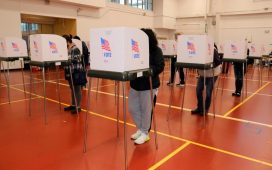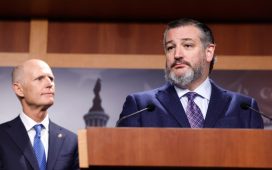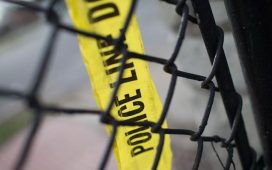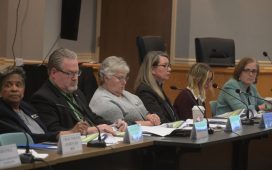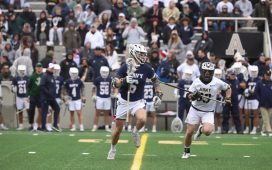Though they are a necessary part of the social distancing measures recommended to slow the COVID-19 pandemic, the mandated limits on gatherings and the ensuing closures of racetracks and OTBs around the country has left many of the racing industry’s seasonal and hourly employees without their source of income for the foreseeable future.
The financial safety nets for many in that position are scant, if they’re there at all. Mike Newlin, the vice president and general manager of Nebraska-based Omaha Exposition and Racing, knew his company didn’t have much to give his employees while the tracks were mostly dark, but it was important to reward their loyalty; some of it spanning back to tracks that have been gone for decades.
An announcement Wednesday from Newlin informed the laid-off hourly staff members at Horsemen’s Park and Lincoln Race Course that they would receive a check or direct deposit to assist with living expenses until another form assistance, such as unemployment insurance, could kick in.
“We’re in a situation we have a lot of employees that have been here since the Ak-Sar-Ben days and State Fair Park days down in Lincoln,” he said. “We have employees that have been here for a long time and we owe them some sort of loyalty on anything we can do to help out.
“Granted, what we’re sending out isn’t much, but it’ll help get food on the table for the next week or two until the government stimulus checks can go out and until they start receiving their unemployment checks,” Newiln continued. “But, at a racetrack, most of your employees are wait staff and mutuel tellers, and these are part-time jobs where a lot of their income comes from tips, so they’re still going to hurt, even when they get their unemployment checks, because they don’t factor in tip wages and things like that.”
Newlin declined to reveal the dollar amount each employee would receive, but he said it was equal checks split between about 120 laid-off workers between the two tracks.
Like many businesses, adapting to the day-by-day updates and restrictions related to containing the virus has led to several tough decisions that can be difficult to communicate in real time. In a short period of time, the Omaha Exposition and Racing staff has been reduced to salaried managers to keep things running until the doors can open again.
“Everything happened so quickly, we didn’t even get a chance to meet with our employees and say, ‘Here’s what’s happening,’” Newlin said. “Over the past week or two, I’ve been trying to think of a way to at least come up with some assistance for them. It’s difficult for us because Nebraska has no additional forms of gaming. We survive on simulcast wagering and what little bit of live racing we have in the state. We have very little money in savings, so this was kind of reaching our neck out a little bit, but we think it’s the right thing to do, considering the circumstances.”
Horsemen’s Park and Lincoln Race Course are both owned by the Nebraska HBPA and operated by Omaha Exposition and Racing. Though they both host small live meets, their primary function is to serve as simulcast centers in Nebraska’s two biggest cities: Omaha for Horsemen’s Park, and Lincoln for Lincoln Race Course. A large portion of the simulcast handle generated at those two tracks is used by the Nebraska HBPA to support whatever live meet is running in the state at the time.
This is of particular interest right now, considering the national spotlight Fonner Park has received this week as one of just two Thoroughbred tracks racing in North America on Monday and Tuesday.
The Grand Island, Neb., track handled a record $1.3 million on Monday based almost entirely on online wagering, but the fate of the track’s 2020 meet beyond its planned two-week trial period remains in flux because Fonner’s cut of the online wagering dollar is relatively small. In a statement, Fonner Park CEO Chris Kotulak said the track’s share of the record handle funded the purses for just four races and didn’t cover expenses for the weekly racing operations payroll.
Meanwhile, Horsemen’s Park and Lincoln are only able to contribute a fraction of their usual inputs because of crowd restrictions. Online wagering is heavily restricted for Nebraska residents, making physical OTBs critical for the state’s industry. Some bettors watched the races at Fonner Park from their cars in the parking lot to take advantage of the track’s betting app, which only works on the track’s property, but services like TwinSpires are not permitted for those living in the state, hamstringing bettors outside of the track’s immediate vicinity, along with the handle they generate.
Facing that situation, Newlin said both Horsemen’s Park and Lincoln still have ways to bet, if extremely limited, within their local and state guidelines.
Horsemen’s Park in Omaha has a frequently-sanitized self-service betting machine and a program kiosk in a vestibule for patrons to drive up, get out of their car, and use one at a time. Lincoln’s simulcast, under slightly more lax regulations for the time being, can still operate with a 10-person limit, but a patron has to leave before another can come in once the number is reached.
Continuing the parallels with businesses in other spheres, the challenges brought about by the pandemic are going to resonate in Nebraska racing long after any ultimate “all-clear” signal is given out by health professionals and regulators.
The Horsemen’s Park meet is scheduled to begin May 8, which is looking more unlikely by the day, even if guidelines on crowd capacity and social distancing are totally lifted by late April. Last year’s nine-day meet in Omaha brought in a record attendance of 67,000, with the most active day hosting over 16,000 fans. Aside from the obvious live handle implications, getting Horsemen’s Park back on the schedule for later in the year could mean a shift for the rest of the state’s racing calendar.
From a national standpoint, the pandemic has already impacted one of the biggest annual fundraisers for Nebraska’s purse pools: the Kentucky Derby. In addition to delaying that needed revenue from the first Saturday in May to the first Saturday in September, Newlin feared that the heart of Big Ten country might have its attention elsewhere by the time fall comes around.
“We would do $1 million at Omaha just on Derby day,” Newlin said. “With the Derby moving to Sept. 5, Nebraska football is a religion here, and that day is also the Nebraska home opener. Our Derby numbers aren’t going to be near what they were in the past, so that’s going to be a little painful.”
New to the Paulick Report? Click here to sign up for our daily email newsletter to keep up on this and other stories happening in the Thoroughbred industry.
Copyright © 2020 Paulick Report.
